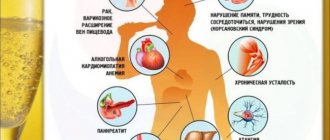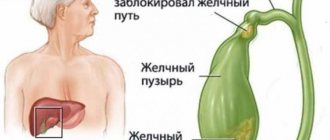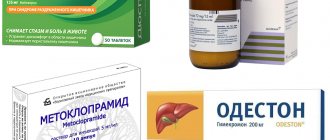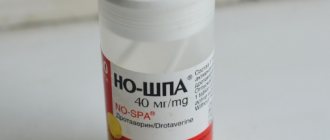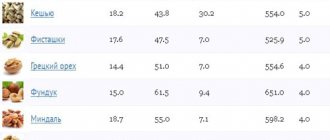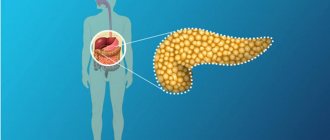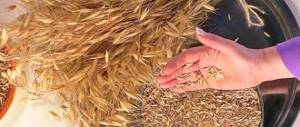The pancreas is a secretory organ that plays an important role in the digestive process. Its inflammation, leading to dysfunction, is very dangerous for humans. Any error in the diet can provoke disruptions in the functioning of this organ. To avoid negative consequences accompanied by excruciating pain (the mildest manifestation of the negative symptoms of the disease), you should strictly follow your doctor’s dietary recommendations. This is especially true for alcoholic beverages, because alcohol for pancreatitis is a dangerous product that can provoke more than one irreversible consequence. That is why gastroenterologists, when asked by patients whether they can at least occasionally, during stable remission, “take” a glass of vodka or a glass of wine, answer with a categorical refusal.
A little about the disease
Pancreatitis is a group of pathologies that is based on inflammation of the pancreas that occurs in the body. The main culprits of this dangerous disease include massive disruption of the passage of digestive juice and a number of other enzymes that iron produces in the intestinal tract . As a result, inflammation of the organ begins, followed by the replacement of healthy pancreatic tissue with fibrous growths.
Recently, there has been a sharp increase in the number of cases of pancreatitis. Experts attribute this to poor ecology, alcohol abuse, smoking and poor nutrition.
How the disease develops
The pancreas is extremely important for the health of the human body. It is with its help that digestive enzymes are produced, which work on the breakdown of carbohydrates, fats and proteins. By the way, insulin, an insufficient amount of which provokes the appearance of diabetes, is also formed in the pancreas.
When the normal patency of the ducts in an organ decreases, the enzymes that the iron produces begin to accumulate abundantly in the ducts. Ultimately, aggressive compounds begin to digest the organ itself, destroying its tissues and cells. After the acute attack of the disease has stopped, the excess production of aggressive enzymes stops.
And after a successful course of drug therapy, the destroyed organ tissue is soon replaced by fibrous tissue, which is not able to produce the enzymatic compounds necessary for digestion. As a result, health problems begin, because food can no longer be completely processed and digested. Because of this, almost all vital microelements leave the body without bringing the expected benefit.
Patients with pancreatitis are required to take medications that contain large quantities of the necessary digestive enzymes in order to compensate for their deficiency.
Causes of pancreatitis
Inflammation of the pancreas, which becomes the basis for the development of pancreatitis, can occur not only due to regular alcohol consumption . Other situations also lead to this pathology:
- heredity;
- long-term hypertension;
- constant overeating;
- severe abdominal injuries;
- vascular diseases;
- cholelithiasis;
- diseases of the intestines;
- problems with hormonal levels;
- severe allergic reaction;
- presence of infectious diseases;
- surgical interventions performed on the stomach;
- tumors and pathological narrowing of the pancreatic ducts;
- long course of medication (especially when using estrogens and antibiotics).
But, of course, most often pancreatitis develops due to prolonged and frequent consumption of alcoholic beverages. The toxic effect of ethanol leads to inflammatory reactions of the organ.
Symptoms of pathology
Regardless of the reasons that provoked the disease, pancreatitis signals itself with a number of symptoms characteristic of this pathology. In particular:
- tachycardia;
- states of shock;
- increased sweating;
- temperature increase;
- general lethargy and weakness;
- stomach upset (diarrhea);
- yellowing of the eye sclera and epidermis;
- constant nagging, sometimes sharp pain in the area of the left hypochondrium.
Symptoms may vary depending on the type of disease:
- In acute pancreatitis, the pain impulse is especially strong and cannot be relieved by any painkiller.
- In the chronic course of the disease, the pain syndrome is not so severe, and an exacerbation of the condition occurs after consuming fatty foods and alcohol.
Alcohol and the condition of the pancreas
Alcohol abuse is the most common cause of the development of this dangerous disease. The toxic effect of ethyl alcohol is considered one of the most powerful in its destructive power . By the way, ethanol has a much more detrimental effect on the pancreas than on the liver organ.
The liver produces a special substance (alcohol dehydrogenase) that can neutralize ethyl alcohol, breaking it down into simple and safe components. The pancreas does not have this ability. After all, the main tasks of this body do not include ethanol processing. And the consequences for the gland from alcohol abuse are much more severe.
In particular, with stable alcohol consumption, the pancreas reacts as follows:
- Creates persistent hypoxia of gland cells.
- It spasms the pancreatic sphincter, which blocks the transition to the intestinal section.
- It disrupts the redistribution of fluid, the result of this syndrome is the thickening of digestive juices and an increase in the concentration of aggressive enzymes.
When a patient with pancreatitis consumes alcohol, his brain signals to the gland that food has entered the body, thereby activating the organ to release aggressive enzymes whose task is to break down food. Alcohol with pancreatitis of the pancreas only provokes swelling of the gland and worsens its condition.
Features of pancreatitis
According to statistics, two types of pancreatitis most often occur in developed countries: biliary (provoked by blockage of the gland ducts) and alcoholic (due to alcohol intoxication). This is explained by excessive drinking and increased consumption of foods high in protein and fat.
It has been established that in 50–90% of cases of acute pancreatitis, the culprit of the pathology is excessive and prolonged consumption of alcoholic beverages.
Even a single consumption of ethyl alcohol in a large dose while simultaneously eating fatty and spicy snacks can provoke an attack of the disease, even in the absence of any predisposing factors . Moreover, the type of alcohol does not matter at all for pancreatitis - even weak wine and light beer (any drink containing ethanol) can provoke an attack.
Maximum permissible dose
Doctors classify a dose of alcohol that threatens the health of the pancreas (pancreatotoxic) as containing only 50 ml of pure alcohol (per day). This amount of ethanol is contained in:
- a liter of beer (about 5% strength);
- 100–150 ml vodka (40% strength);
- 400 ml wine or champagne (12% strength).
But during the stormy and long holidays that Russians like to celebrate on a grand scale, it is unlikely that anyone will begin to strictly calculate the dose of alcohol. What about beer? This aromatic intoxicating drink is enjoyed equally by men and women. Moreover, many foam lovers relax in the arms of a beer glass every evening. But even small doses of ethanol, if consumed regularly, gradually and imperceptibly lead a person to pancreatitis.
Impact dose of alcohol for the pancreas
If a person is wondering whether it is possible to drink with chronic pancreatitis after an acute condition, then it is worth understanding that the answer here is clear and categorical - no. Therefore, if you want to drink beer for pancreatitis or wine for pancreatitis, then keep in mind that:
Is it possible to drink alcohol when you have a fever?
- 1 glass of alcoholic beer contains 12.8 grams. ethyl alcohol;
- Cognac for pancreatitis in a volume of 30 ml is 12 g. ethanol alcohol;
- Dry wine (150 ml) is 18 g. ethyl alcohol.
As mentioned above, a toxic dose for a healthy organ is already 59 ml of pure ethanol.
Is it possible to drink alcohol with pancreatitis?
For unknown reasons, there is a persistent myth among ordinary people that in the presence of such a pathology, drinking alcohol is not forbidden. With the condition that you use it in minimal quantities and only the highest quality.
Strong liquor
What is the difference between surrogate alcohol and elite vodka? Only in the increased content of fusel oils, toxic inclusions and the use of low-grade alcohol. But it is alcohol, which is the basis of the most expensive branded alcohol, that has a negative effect on the pancreas .
Alcohol also contains the notorious red wine, which its admirers even recommend drinking for chronic pancreatitis, they say, this alcohol contains a high concentration of resveratrol (a powerful antioxidant).
And therefore, good and natural red wine can promote the health of a patient with pancreatitis, providing antidiabetic and anti-inflammatory effects. But this also turns out to be a myth; if you have pancreatitis, you shouldn’t even get carried away with dry red wine.
As for beer, its compatibility with pancreatic health is also zero. Foam negatively affects the condition of the gland due to its abundant consumption. After all, rarely does anyone consume aromatic intoxicating drinks in small quantities; they usually drink them a lot and often. And the increased content of carbohydrates in the foam provokes the pancreas to accelerate the production of insulin.
Thus, beer for pancreatitis acts as follows:
- Actively stimulates the pancreas to increase its work in releasing enzymes, especially insulin.
- Promotes disruption of fluid distribution in the body. This leads to thickening of the secretion secreted by the gland.
- It severely irritates parts of the intestinal tract, which disrupts the normal outflow of digestive juice from the pancreas.
Pancreatitis and various types of alcohol
There are a huge number of different types of drinks produced by the alcohol industry. All of them have not only different taste characteristics, but also different percentages of alcohol. This factor influences the existence among people with a history of pancreatic inflammation of the legend that a small concentration of ethanol is safe for this disease. But this is just a myth. Alcohol for pancreatitis poses a direct threat, regardless of its strength, and its benefits are far-fetched by those patients who feel the desire to drink at least a glass.
Alcohol is especially dangerous for women. Irrefutable statistics indicate that any representative of the fair sex who drank strong drinks in small quantities, even at a time when she had a long remission of pancreatitis, experiences severe symptoms of exacerbation of the disease faster than men. That is why they are strictly prohibited from consuming the smallest doses of alcohol, regardless of the alcohol content in it. But still, so that the words of gastroenterologists do not remain unfounded, we should consider the effect of drinks of various strengths on the pancreas.
Beer
This drink, beloved by many, has such a low strength that it seems completely safe. But this opinion is completely untrue. Despite the minimal ethanol content, beer drunk during pancreatitis can have a very negative effect on the pancreas. Its danger is as follows:
- the alcohol contained in a foamy drink, especially if it is unfiltered, irritates the intestines and causes spasm, which creates an obstacle to the outflow of digestive secretions,
- The large amount of carbohydrates that beer contains helps stimulate the damaged pancreas and increase its production of insulin.
Beer addiction during remission of a pathological condition is just as dangerous as in the acute form of the disease. Many patients convince themselves that nothing will happen if they drink a small amount of non-alcoholic beer. But such a replacement also poses a threat.
The seemingly safe drink contains a large amount of carbon dioxide, which irritates the gastrointestinal tract and complicates their functioning.
Champagne
Many patients with pancreatitis, especially before the New Year, are interested in the question of the degree of danger of champagne. In this case, experts also respond with a categorical ban. Drinking a sparkling drink when the pancreas is inflamed is dangerous, since it contains large quantities of the following components that are unacceptable for this disease:
- carbon dioxide, which irritates the mucous membranes of the digestive organs,
- ethanol, which aggravates the inflammation process,
- sugar that enhances insulin production.
In other words, drinking champagne if you have pancreatitis is completely unacceptable. Even just one glass of this drink can almost immediately provoke an attack of the disease. Moreover, an attack caused by this type of alcohol will be so strong that it cannot be stopped even if you quickly take painkillers.
Wine
The use of this drink by patients with pancreatitis raises a lot of controversy. Many argue that dry red wine is beneficial for the body, as it contains a large amount of microelements necessary for its functioning, including iron, which prevents the development of anemia. But this is not true at all. Any wine with the development of pancreatitis, even a self-prepared homemade drink of minimal strength that does not contain preservatives, poses a direct threat to the pancreas, since it contains the following components that are dangerous for the organ destroyed by the inflammatory process:
- organic acids and sugars obtained from the fermentation of grape juice,
- flavorings, dyes, preservatives,
- ethanol.
Thus, any wine drink, regardless of what color it is, white or red, is contraindicated for absolutely all people with a history of pancreatitis. The ingredients that make up this light alcohol contribute to disruption of the pancreas and the rapid destruction of its cellular structures.
Strong alcohol
There is a common myth among patients with pancreatitis that good vodka or cognac, which has a high purity quality, does not cause any harm in small quantities. But this, again, is just a legend. Any person who drinks any alcoholic drink during the remission of the disease (if it worsens, even an inveterate alcoholic will not have the desire to drink intoxicating liquid) runs the risk of quickly ending up in a hospital bed with an exacerbation of the disease.
Dangerous consequences
Ethanol entering the body promotes the active production of serotonin, which leads to an increase in the production of digestive enzymes. With existing inflammation of the pancreas and narrowing of its ducts, digestive juice cannot enter the duodenum and carry out its direct duties of digesting food.
When these enzymes accumulate excessively, pressure increases and pancreatic necrosis occurs (digestion of the body's own cells). After the death of healthy cell tissue, fibrous tissue is formed in its place, which is not capable of producing the necessary hormones. The sad result is type II diabetes .
But this is far from the only consequence of alcohol consumption in pathology. The patient needs to know that if he becomes addicted to alcohol, he will have to face:
- relapse of pathology;
- general intoxication of the body;
- the appearance of other pathologies against the background of pancreatitis;
- development of adenocarcinoma (pancreatic cancer);
- a sharp deterioration in health up to the development of painful shock;
- pancreatic necrosis (if it worsens, death often occurs);
- the formation of a cyst in the affected area with necrosis, followed by suppuration.
What conclusions do we have?
Summarizing all that has been said, we can draw an unambiguous conclusion - in case of pancreatitis, alcoholic drinks are strictly prohibited. You can come to this conclusion on your own, summarizing the principles of all that has been said:
- Any alcoholic drink is made on the basis of ethyl alcohol. There is no alcohol that is safe for the body.
- The usefulness of the elite representatives of the alcoholic world lies only in the guaranteed absence of toxic and poisonous additives. But ethanol is present in them in a given volume.
- Long-term consumption of alcohol can provoke an attack of pancreatitis even in a healthy person who has never complained about the condition of the pancreas.
- Beer, in addition to containing alcohol, also increases the production of insulin, which affects health and can lead to the development of pancreatitis.
So, if a diagnosis such as pancreatitis is made, alcohol of any kind and strength should be completely abandoned . Therefore, even in the absence of obvious symptoms of pathology, even while sitting at a festive table rich in alcohol and snacks, preference should be given to natural juice, homemade fruit juice, compote, or non-alcoholic beer. Otherwise, a fun feast may end in a hospital bed for a patient with pancreatitis.
Pancreatitis is a disease of the pancreas characterized by inflammation of its tissue and digestion of its own cells.
To treat this pathology, appropriate drug therapy is prescribed, as well as diet. This is due to the fact that many foods worsen the condition of the gland. Thus, the development of pancreatitis is promoted by alcohol consumption.
Pancreatic response to alcohol
The pancreas is responsible for the production of enzymes involved in digestion and affects metabolism. Ingestion of alcohol has a negative impact on a person’s general health, the functioning of the digestive tract, and the functioning of the pancreas.
When a patient drinks alcoholic beverages, he experiences the following changes:
- Prolonged spasm of the sphincter of Oddi. It is located at the point where the gland ducts exit into the lumen of the duodenum and regulates the amount of excreted enzyme. Alcohol causes this sphincter to contract, which leads to retention of pancreatic juice in the organ and its destruction.
- Increasing the proportion of enzyme in pancreatic juice. In other words, it becomes more concentrated. Due to spasm of the sphincter of Oddi, juice accumulates in the organ and destroys the secretory tissue of the gland. Damaged cells are replaced by connective tissue that does not have the function of producing enzymes.
- When alcohol breaks down during digestion, a substance called acetaldehyde appears. It is harmful to all tissues and organs of the body, since it provokes the transformation of fibrous cells into connective cells. Because of this, the saturation of the pancreas with blood deteriorates, making it especially vulnerable to inflammation.
- Violation of cell structure due to exposure to alcohol metabolites.
Thus, alcohol abuse has a negative effect on the pancreas, destroys its tissue and interferes with its secretory function.
How does alcohol interact with the drug?
Some doctors allow the possibility of using Pancreatin while drinking alcohol. However, this does not apply to all cases. First of all, one should rely on the state of human health.
If he has pancreatitis, checking Pancreatin and alcohol compatibility is strictly prohibited. This is especially prohibited in case of exacerbation of this disease, during which the pancreas destroyed Alcohol will only speed up and intensify this process.
However, this does not mean that with chronic pancreatitis it is permissible to drink alcohol. In this state, the disease has not left the body, but is in sleep mode. The entry of alcohol into the body can awaken it again and cause a transition from the chronic to the acute phase.
You should not use Pancreatin if you have alcohol poisoning. This will promote even greater release of digestive enzymes and enhance the functioning of the pancreas. As a result, this will lead to overflow of the bile ducts and their gradual destruction. As a result, diabetes mellitus may develop.
Can alcohol cause pancreatitis and why?
Doctors say alcohol contributes to the development and exacerbation of inflammation of the pancreas . This is explained by its influence on the tissues of the whole organism and this organ in particular.
There are several reasons for this that arise from drinking alcohol:
- inability of the pancreas to decompose alcohol;
- spasm of the sphincter duct that removes pancreatic juice;
- blockage of the lumen of the organ ducts;
- retention of pancreatic juice in the organ;
- increasing the concentration of the enzyme in the secretion of the gland;
- self-digestion of glandular cells;
- damaged cells begin to become inflamed;
- deterioration of blood flow in the organ;
- deficiency of nutrition and oxygen supplied to the gland;
- rapid growth of connective tissue in the organ.
The immediate consequences of drinking strong drinks trigger the process of organ damage and act as a trigger for pancreatitis . These factors act like a domino, starting a chain reaction leading to inflammation of the organ.
What alcoholic drinks can you drink if you have pathology?
It is firmly established in Russian culture to celebrate holidays, regardless of their significance, by drinking alcoholic beverages.
And not all patients suffering from pancreatitis are aware of the detrimental effect that even a small dose of alcohol has on the pancreas. It is especially difficult in this regard for alcohol-dependent patients, for whom giving up drinking strong drinks is a big problem.
Doctors often hear the following questions: “Is a little possible? What about beer? Isn’t it possible at all?”
There is only one answer - alcohol in any form and quantity worsens the course of the disease and provokes its exacerbation and relapses after recovery.
Naturally, the doctor cannot control whether his patient drinks. However, this choice remains on the conscience of the patient, and only he is responsible for his health . The following facts will help you make the right choice:
- all alcoholic drinks contain alcohol;
- expensive drinks are distinguished from cheap ones only by a smaller number of impurities;
- alcohol can destroy even healthy pancreatic tissue, while inflamed tissue is even more vulnerable.
Can I have champagne?
Champagne is also an alcoholic drink, and therefore the answer is obvious. In addition, it has a high alcohol content. So for 750 ml of drink there is 90 ml of ethanol.
Even a smaller dose provokes the destruction of glandular tissue.
Also, real champagne has a high cost. The varieties presented in stores at an average price contain many impurities that cause additional harm to the body .
Is beer harmful or not?
The appeal of beer is its low alcohol content. Some patients even remember the non-alcoholic version of this drink. However, they forget that beer contains a large amount of carbohydrates, the exchange of which is carried out by the pancreas.
When carbohydrates enter the body, the secretory function of this organ is activated, which leads to further destruction of glandular tissue.
How does wine affect?
Contrary to popular belief about the benefits of red wine, drinking it for pancreatitis is harmful and even dangerous. This is due to the presence of alcohol in the drink, as well as the sugar content.
A large amount of sugar activates the pancreas and increases the level of enzyme in pancreatic juice. In this regard, destruction of organ tissue is provoked.
Strong alcohol
Many patients argue with doctors, arguing that vodka, cognac and other strong drinks are similar to medicinal tinctures, which also have a high strength. However, such drinks are consumed in much larger quantities than the same tinctures, and therefore have a devastating effect on the affected organ.
Just one glass of vodka can send a patient to intensive care . The answer about whether you can drink alcohol with pancreatitis is obvious, compatibility is zero.
To avoid worsening the course of the disease, a complete abstinence from alcohol in favor of non-alcoholic drinks is recommended.
Alcoholic drinks for pancreatitis and acceptable dosages
Any doctor will tell you that people suffering from pancreatitis are not recommended to drink alcohol. Such a drink has a detrimental effect on the entire body, and especially on the gastrointestinal tract, the functions of which are already impaired. There is even an alcoholic type of pancreatitis that occurs in people who love drinking.
It can even be fatal, as it often ends:
- pancreatic necrosis;
- stomach ulcer;
- obstruction of paths and other serious problems.
That is why those people with pancreatitis who need to feel healthy and have something to live for should avoid alcoholic beverages. With proper treatment and diet, you can reduce the symptoms of the disease to a minimum, stop its development and practically forget about the presence of the disease. If this is not done, then the pancreas will be in a constant state of inflammation, which means the stomach will not stop hurting a lot, and the discomfort will not disappear.
What alcoholic drinks can be consumed and in what doses
Patients in remission or with chronic pancreatitis can afford to drink alcohol in rare cases. This, of course, will not be beneficial, but it will not lead to aggravation, if you know when to stop. It is important to consider that alcoholic drinks should not be taken more than 2-3 times a month, and the less often the better.
Allowed drinks and their dosages:
- beer – 1-2 glasses at a time;
- wine - 1 glass;
- alcoholic cocktails – 1-2 pcs;
- vermouth – 1-2 glasses;
- mead – 100-150 ml;
- champagne – 2-3 glasses;
- mulled wine – 100-200 ml.
It is very important to know when to stop, because even if you drink a low-alcohol drink in large quantities, it will certainly cause stomach pain.
Strong alcoholic drinks should be avoided, as even in small quantities they will have a bad effect on the pancreas.
In what cases is it prohibited to drink alcohol?
There are a number of reasons why alcohol should not be consumed by patients with pancreatitis, even in small quantities:
- Alcoholic drinks are strictly prohibited during an attack and for about a month after it. At this time, even healthy food may be poorly digested, so you should forget about alcohol for this period.
- It is also not recommended during an exacerbation and during active progression of the disease, since at this time it is necessary to prevent all factors that provoke an exacerbation.
- Alcoholic drinks are prohibited for people who, along with pancreatitis, have diseases of the liver, biliary tract, stomach ulcers and other gastrointestinal ailments.
- It is especially important to give up alcohol during pregnancy, as it will have a detrimental effect not only on the gland, but also on the fetus.
- People who have severe pancreatitis are also prohibited from breaking their diet and drinking alcoholic beverages. All this can lead to significant deterioration of the condition and death.
You should not take risks for the sake of a bad habit, since it is impossible to cure an advanced disease, and the inflammation will only progress.
gastrozona.ru
Preventive recommendations
Restoration of pancreatic function and completion of treatment does not mean that alcohol is again permitted for consumption. This can be explained by the effect that strong drinks have even on a healthy organ. The pancreas, weakened after the disease, is even more vulnerable to the effects of alcohol.
Failure to follow a diet and excessive drinking, even after recovery, provoke the risk of relapse of the disease.
The following recommendations help prevent relapses:
Alcohol has a detrimental effect on the body as a whole. However, the pancreas, affected by pancreatitis, suffers more than other organs from alcoholic drinks. Following the advice of doctors can avoid exacerbation and recurrence of pancreatitis.
Video on the topic
What amount of alcohol is harmless for pancreatitis:
Today, a disease such as pancreatitis is very common. Often, people do not attach much importance to the diagnosis and continue to lead their usual lifestyle, namely, eating fatty and spicy foods and drinking alcohol.
And the most important question that torments almost all patients is whether it is possible to drink with pancreatitis and what will be considered normal. Before moving on to the effect that alcohol has on the body, it is necessary to become more familiar with the disease itself in order to have an idea of the problem that has arisen.
What is pancreatitis
Inflammation of the pancreas - pancreatitis
So, pancreatitis is an inflammatory process in the pancreas, during which it literally devours itself, thereby exposing the body to great danger. The pancreas plays an important role in the digestion process and in regulating the levels of certain hormones.
But if it is affected by negative factors, all released substances can stagnate in the organ itself. And at this moment pancreatitis develops. The disease can occur in an acute form, when all the symptoms are so pronounced that sometimes doctors do not even need to take additional tests to make a diagnosis.
Or it can occur in a chronic form, when the patient is constantly tormented by unpleasant sensations, but during the period of exacerbation he generally becomes ill.
There are many reasons for the development of the disease, and one of them is the ill-fated alcohol, which people are so accustomed to drinking because they get a relaxing feeling.
Can I use it?
For diseases of the pancreas, doctors recommend adhering to a healthy lifestyle and organizing proper nutrition. Quitting alcohol is an indispensable condition for good health, since there is a direct connection between the consumption of alcoholic beverages and pancreatitis.
In chronic form
With chronic pancreatitis, the condition of patients often returns to normal or mild symptoms are observed: nausea, mild abdominal pain, gas formation, loss of appetite. In a state of remission, many believe that small doses of alcoholic beverages do not harm the body.
Alcohol causes a spasm of the sphincter of the pancreas, which results in stagnation of secretions and inflammation of the gland. Substances formed as a result of the breakdown of ethanol can cause thickening of the walls of blood vessels and the appearance of scars on them, which leads to disruption of blood supply and tissue death.
If, after a severe attack, patients try to strictly adhere to all the doctor’s recommendations, then when their condition improves, they allow themselves to drink a little alcohol. Without noticing a sharp deterioration, people mistakenly believe that one or two glasses of a good drink will not harm them, forgetting about the irreversible processes of a cumulative nature that end in a painful attack.
With biliary
With biliary pancreatitis, problems with the pancreas are aggravated by disruption of the bile ducts.
When drinking alcohol, there is a possibility that gallstones can block the bile ducts and provoke an acute attack.
In the acute stage
With exacerbation of pancreatitis, a sharp deterioration in condition, severe abdominal pain and other symptoms are observed. During this period, alcohol consumption is strictly prohibited. The consequences of violating this prohibition can be various complications, disability and even death.
For pancreatitis and cholecystitis
If the pancreas and gallbladder malfunction, alcohol increases inflammation of the gland, can cause liver colic and promotes the formation of gallstones. Because of this, doctors categorically prohibit the consumption of any alcohol when diagnosed with cholecystitis and pancreatitis.
Causes of pancreatitis
It is very important to know why pancreatitis can occur, so that you can at least partially avoid the development of the disease. So, the main reasons include:
- Drinking alcoholic beverages of various strengths. If a person constantly drinks alcoholic beverages, and even worse, does not monitor the amount he drinks, thereby exposing the body to great danger. The pancreas will react to this first. At a certain point, simply under the influence of a large amount of alcohol, it ceases to perform its functions, exposing the entire body to danger
- Gallstone disease, during which a stone can block one of the ducts, thereby causing severe inflammation
- Diseases of the duodenum, such as duodenitis and ulcers
- Surgery on the stomach or biliary tract. During the operation, an infection may be introduced, which over time will spread further and further, affecting large organs. And the first one that gets in her way is the pancreas
- Abdominal injuries, during which the pancreas may be damaged
- Taking certain medications, the side effects of which include damage to the pancreas
- Metabolism problems
- Heredity
Doctors note that in approximately 30 percent of cases, even with a complete and timely examination, they cannot accurately determine the cause of the disease in order to eliminate the provoking factor.
Pancreatitis can also occur as a result of taking certain medications.
Pancreatitis can occur either in acute or chronic form. And even with severe pain attacks, some people are very interested in the question of drinking alcoholic beverages with such a diagnosis. Regardless of what causes the disease, the symptoms will be as follows:
- Severe pain, and some patients note that it cannot be tolerated. And almost all painkillers do not have the desired effect. Sometimes, even if medical assistance was not provided on time, a painful shock may occur, from which it is difficult to get a person out of it
- High body temperature that rises as a reaction to an inflammatory process in the body
- Problems with blood pressure, it can either increase or decrease
- Change in complexion. Doctors note that in both acute and chronic forms, the skin of the face gradually begins to change shade from light to gray-earthy
- Hiccups. Not everyone knows, but frequent and causeless hiccups can become a symptom of pancreatitis, and the only one
- Nausea and vomiting. A very common symptom of acute pancreatitis is vomiting, which does not bring any relief, even for a short period of time.
- Toilet problems, such as constipation or diarrhea. Depending on how the body reacted to the disease, a person may experience either loose stools, which are accompanied by an unpleasant odor, or, conversely, constipation with severe pain in the abdomen and difficult passage of gas.
- Shortness of breath, which most often occurs after repeated vomiting
- Blue skin tone
When the very first symptoms of acute pancreatitis appear, you must immediately call an ambulance, as the condition worsens every minute. As for the symptoms of chronic pancreatitis, they are slightly different:
- Painful sensations appear approximately 15 minutes after eating. Moreover, they are not strong and go away after some time.
- More severe attacks begin to torment after eating fatty, spicy, sweet foods
- Intermittent nausea and vomiting
- A faint yellow tint to the skin that may come or go
If you ignore the disease and continue to lead your usual lifestyle, you can easily develop diabetes.
Alcoholic pancreatitis of the pancreas and can you drink champagne?
Many people with a history of pancreatitis are trying to understand whether it is possible to drink alcoholic beverages with pancreatitis and, if so, what drinks are allowed. It’s worth noting right away that alcohol and pancreatitis are extremely incompatible concepts. Why? What are the consequences of the effect of ethanol on a diseased organ (pancreas)? We'll look into all this below.
Pancreatitis: definition and development of the disease
Pancreatitis is an acute inflammatory process in the pancreas. Various diseases can lead to this pathology, such as:
- Cholelithiasis;
- Heart diseases;
- Pathologies of the stomach and duodenum;
- Previous operations on the stomach;
- Also, one of the reasons for the development of pancreatitis is alcoholism or simply excessive drinking. This type of disease is called alcoholic pancreatitis.
It is worth knowing that chronic pancreatitis of alcoholic etiology develops exclusively under the influence of ethanol. In particular, the process of disease formation is as follows:
- Any alcohol (even non-alcoholic beer) when it enters the stomach quickly irritates the mucous layer of the organ. That is, it burns, to put it simply. As a result of this effect, the vessels of the mucous layer expand, and the drink is absorbed into the blood as quickly as possible. Proof of this is the feeling of slight intoxication within 10-15 minutes after drinking. That is, ethanol reached the brain cells through the bloodstream and began to kill them.
- With the same blood flow, alcohol penetrated into the pancreas. This organ is less protected from the effects of alcohol than the liver. Although the liver is the main barrier to poisons and toxins, it still has the ability to regenerate its cells. The pancreas is defenseless against alcohol toxins.
- Despite the fact that alcohol provokes a sharp rise in blood sugar, the pancreas begins to produce insulin, which should convert glucose into the necessary energy. But the organ does not quite cope with its function, since it works on blood poisoned by alcohol. As a result, over time, alcoholic pancreatitis develops with frequent libations.
Important: a toxic dose for the pancreas of a healthy person is already 50 ml of alcohol in the form of strong and not very strong alcohol. What can we say about the quantities of alcohol that avid drinkers drink? Here, alcoholic pancreatitis is guaranteed over time.
Reaction of a diseased organ to alcohol
If the question of how alcoholic pancreatitis is formed has been more or less understood, then the general picture of how alcohol affects an already inflamed organ and what this entails is still worth understanding. So, the situation with a diseased (inflamed) pancreas, even if the organ is in a state of long-term remission, looks like this:
- Blood saturated with ethanol washes the inflamed organ. From such a “whiplash,” the pancreas is forced to produce more enzymes and gastric juice (including pancreatic juice).
- But a painful spasm also occurs here, caused by a burn from alcohol-containing blood. That is, all enzymes and hydrochloric acid do not pass into the duodenum to digest food, but remain in the diseased organ.
- The pressure in the pancreas increases and the most terrible process begins - pancreatic necrosis. That is, the pancreas begins to digest itself. Digested organ cells are replaced by scar tissue and this process is irreversible. That is, over time, the pancreas will completely stop performing its function. And insulin production as well. And, as you know, it is insulin that takes care of converting glucose into energy. A lack of this hormone is 100% likely to lead to type 2 diabetes. Thus, alcoholic pancreatitis poses a very great threat to drinkers. That is, the pancreas and alcohol are incompatible in principle.
Symptoms of pancreatitis
If you are interested in how the pancreas feels in an alcoholic, and at the same time you often drink, then you should pay attention to the following symptoms:
- Sharp pain in the right hypochondrium, which does not go away even under the influence of antispasmodics. This indicates that acute pancreatitis has developed. The condition requires urgent hospitalization.
- Less pronounced, but constant and aching pain is a sign of chronic pancreatitis.
- Nausea and frequent belching.
- Stool disorders (more often diarrhea than constipation).
- Possible vomiting.
- Temperature rises to 38 degrees and above.
- Sweating and yellowing of the skin and eye sclera.
Impact dose of alcohol for the pancreas
If a person is wondering whether it is possible to drink with chronic pancreatitis after an acute condition, then it is worth understanding that the answer here is clear and categorical - no. Therefore, if you want to drink beer for pancreatitis or wine for pancreatitis, then keep in mind that:
- 1 glass of alcoholic beer contains 12.8 grams. ethyl alcohol;
- Cognac for pancreatitis in a volume of 30 ml is 12 g. ethanol alcohol;
- Dry wine (150 ml) is 18 g. ethyl alcohol.
As mentioned above, a toxic dose for a healthy organ is already 59 ml of pure ethanol.
Severe consequences of alcoholism with pancreatitis
If you continue to drink alcohol with pancreatic disease, the consequences will be the most terrible. In particular, the following conditions may develop:
- Pacreonecrosis (digestion of the organ’s own cells);
- Painful shock against this background;
- Formation of type 2 diabetes mellitus;
- Formation of cysts and pus in them in the cavity of the diseased organ;
- Pancreatitis can also develop into the development of a malignant formation against the background of pancreatic necrosis.
Important: therefore, if you have pancreatitis, drinking alcohol is strictly prohibited. Even dry wine, even champagne or beer in small quantities. In addition, it is even prohibited to eat confectionery containing alcohol. Sweets with liqueur, cognac, etc. should not be present in the diet of a patient with pancreatitis.
Myths about alcohol and pancreatitis
Many patients with inflammation of the pancreas tend to believe some myths regarding alcohol. Here are some of them, dispelled by a gastroenterologist:
- Myth 1. Expensive alcohol will cause less harm to the diseased organ. It is worth knowing that the ethanol molecule is identical in both an expensive drink and a cheap one. The only difference is that fusel alcoholic drink will only harm the liver and kill both organs many times faster.
- Myth 2: A good snack prevents the negative effects of alcohol. In part, fatty foods inhibit the absorption of alcohol into the blood. But sooner or later it will happen anyway. And, in addition, the pancreas will be dealt a double blow from such a high-calorie snack. Therefore, if you are wondering what you can’t eat and what you can eat when a diseased organ is inflamed, then you should understand that food should be exclusively dietary and low-fat.
- Myth 3. Dry red wine is good even for heart patients. It may be useful for heart patients. But the damage caused to the inflamed pancreas will be correct. So don't take any chances. Perhaps, by giving up alcohol, you will be able to completely restore the organ over time, if you take the necessary medications prescribed by your doctor.
Important: it is worth remembering that there is simply no harmless alcohol for a sick pancreas. Even a minimal dose of alcohol provokes an exacerbation of the disease. Therefore, think twice before aggravating your condition with a glass of vodka or a glass of wine. In addition, remember that beer and the pancreas are also incompatible. Therefore, alcoholic beverages with pancreatitis should be completely excluded from the diet. Drinks you can drink during pancreatitis are only non-alcoholic. They are the only ones allowed and useful for a sick person.
Advice: in order not to aggravate your situation, it is better to consume foods only in boiled or stewed form. This will make the work of the pancreas easier. And yet, even if your friend/neighbor drank and drinks alcohol with a diseased organ, this does not mean that he can get away with it. Any alcohol, even wine alcohol, gradually kills the diseased organ. Even if outwardly it is not very noticeable.
IMPORTANT. The information presented in the material is for informational purposes only. And it is not an instruction for action. A mandatory consultation with your attending physician is required.
Materials: https://alkotraz.ru/zdorove/alkogol-pri-zabolevaniyah/mozhno-li-pri-pankreatite.html
+ — Read more ≫ Click to collapse
Pancreatitis is a serious disease of the pancreas that dramatically worsens the condition of the body. It is known that this organ plays an important role in the digestive system, therefore, if its functionality is disrupted, a person can develop a lot of pathologies that are dangerous to health.
Products that impair the functioning of the pancreas and cause the development of pancreatitis include alcohol, with any amount of alcohol content. Therefore, the question of whether it is possible to drink alcohol with pancreatitis is of interest to many people.
A healthy pancreas performs important “tasks” in the body, namely:
- produces insulin, which regulates sugar levels in the bloodstream;
- produces special enzymes that help digest food, as well as proteins and fats, while in the intestines.
Often, when certain factors develop in the body, these enzymes begin to malfunction, which leads to the pancreas digesting itself.
This happens especially often if a person takes an alcoholic product in large dosages, so when treating this disease it is important to completely stop drinking alcohol.
Doctors distinguish two forms of pancreatitis - acute and chronic. The main sign of the acute form is the appearance of pain in the upper abdomen, endowed with varying intensity. In addition, a person will have other signs of developing pancreatitis, which include:
- bowel dysfunction;
- nausea, often turning into vomiting;
- weakness;
- lack of ability to perform physical activity.
Acute pancreatitis, in the absence of proper treatment, can develop into an advanced form - but if the help was effective and timely, the pathology can be completely cured. Severe forms of pancreatitis are often fatal, so when the disease is detected, immediate measures must be taken to treat it.
In chronic pancreatitis, pain is constant. If they are paroxysmal, the person will feel unpleasant feelings in the back, sternum and abdomen. This form is characterized by constant exacerbations, during which the patient suffers from nausea, loss of appetite and bowel dysfunction.
As the pathology progresses, the symptoms of pancreatitis become more pronounced, which can lead to the appearance of diabetes mellitus, cysts, enterocolitis and malignant tumors.
Beer, cognac and wine for pancreatitis, as well as other alcohol-containing drinks, have a special connection with each other, because they often cause the development of pancreatitis. Why is this happening? The disease progresses as a result of the fact that the cells of the pancreas are more sensitive to alcoholic beverages than the liver, so if in the latter ethanol quickly decomposes, then alcoholic compounds begin to accumulate in the pancreas, gradually affecting it.
Once in this organ, the breakdown of alcohol begins to provoke its spasm, as well as negatively affect the outflows. As a result of this, enzymes accumulating in the pancreas begin to digest not food, but the organ itself, which leads to inflammation. Therefore, when treating pancreatitis, you should avoid drinking alcohol and also maintain proper nutrition, because the speed of recovery of the body depends on this.
Important: acetaldehyde produced by liver cells has a strong negative effect on the pancreas, as a result of which its inflamed areas begin to become covered with scar tissue, which leads to:
- deterioration of organ function;
- disruption of blood flow in the body;
- deterioration in the supply of oxygen and nutrients.
Alcohol taken during the treatment of pancreatitis quickly worsens the condition of the pancreas - after 7-12 days the patient begins to complain of severe pain that requires urgent treatment.
Is it possible to drink alcohol if you have pancreatitis? If a person is accustomed to drinking alcohol-containing drinks in large quantities, but believes that drinking it does not cause any harm to the health and general condition of the body, he is very mistaken. Alcohol mostly affects the digestive organs, which are quite difficult to recover and often lead to negative complications.
The drinker must remember that even a single use of any alcoholic drink can cause an exacerbation of pancreatitis or an attack. Since for any person the toxic dose of alcohol is 50 ml, if the disease develops, it does not matter at all what he drank the day before - beer, wine or vodka. In this case, everything depends solely on the dosage of the alcoholic drink, which causes exacerbation or attacks of the disease that require urgent treatment.
Despite the fact that beer contains the smallest amount of ethanol - 26 ml per 500 ml of drink, it also contains carbohydrates, forcing the pancreas to produce an increased amount of insulin, and this leads to a sharp change in the distribution of fluid in the body. Therefore, even this type of alcohol should not be taken during the treatment of pancreatitis.
What else is dangerous about drinking alcohol for this disease:
- coloring substances included in alcohol have a negative effect on the condition of the organ;
- preservatives and flavoring additives damage the cells and tissue of the pancreas;
- carbon dioxide, which causes carbonation of some types of alcohol, negatively affects the gastrointestinal mucosa.
Therefore, doctors strongly recommend stopping drinking alcohol if pancreatitis develops, because even a minimal dose of alcohol sharply worsens the condition of the pancreas and prolongs the treatment period for the pathology.
Materials: https://alcogolizmed.ru/oslozhneniya/mozhno-li-upotreblyat-alkogol-pri-pankreatite.html
life4well.ru
Alcohol for pancreatitis
Pancreatitis and alcohol are incompatible!
One of the most troubling questions asked by many patients diagnosed with pancreatitis, as mentioned above, is whether it is permissible to drink alcoholic beverages. Some doctors may allow you to consume about 50 grams of wine, but it is unlikely that anyone will stop at this dosage.
Most often there is a continuation. That is why patients with chronic or acute pancreatitis are strictly prohibited from drinking alcohol:
- Even in the smallest quantities, when it comes to one glass, alcohol contributes to the destruction of already destroyed pancreatic cells
- Even with little or almost zero alcohol content in the drink, because in any case it will enter the blood and then the pancreas
- Even in confectionery. When baking pastries and pies, confectioners mainly add liqueur, cognac, etc. to improve the taste and add charm to the dessert. In case of pancreatitis, you should carefully read the composition of the product to avoid even a small alcohol content
Some patients believe that if the disease has entered a chronic stage, or a period of recovery has begun and the condition has improved significantly, they can begin to eat poorly and drink alcohol. It is strictly forbidden to do this, since even one glass can ruin the entire treatment being carried out.
Scientists have proven that alcohol is the cause of the disease in about 50 cases. This is especially true for those people who do not know how to drink and constantly overstrain their organs.
In a normal (healthy) state, the pancreas produces about one and a half to two liters of pancreatic juice in one day, which contains all the necessary enzymes for the normal functioning of the entire digestive system. But what happens is that the passage is closed, and all the pancreatic juice flows back, destroying the organs.
The most destructive effect is exerted by alcohol, which intensifies the inflammatory process in the pancreas, because it does not produce the enzymes that will help break it down. Alcohol, entering the blood, provokes the production of serotonin, which in turn causes the pancreas to secrete more juice. Due to the narrowing of the ducts, the juice simply cannot leave the pancreas itself and stagnates in it, thereby digesting its own cells.
And in place of the digested and dead cells, connective tissue is formed, which cannot produce insulin in any way, and, accordingly, diabetes mellitus can develop. Therefore, the answer to the question of whether it is possible to drink alcohol with pancreatitis must be answered categorically “no.” Otherwise, the patient’s condition will only worsen, and previous treatment will not give any positive results.
Alcohol for inflammation of the pancreas
The effect of alcohol on internal organs during pancreatitis differs from the effect on a healthy body. The body can accept a small amount of alcohol relatively safely: 30-40 ml of strong drink or 50-100 ml of wine - and then only when there is no exacerbation.
Since in almost 100% of cases alcohol consumption continues with all the ensuing consequences, doctors prefer to completely prohibit alcohol for pancreatitis.
Reasons for a complete ban on alcohol:
- Even small amounts of alcohol contribute to the rapid destruction and death of pancreatic cells. Cells are already dying from pancreatitis, such an effect is destructive, the disease is more severe.
- A small amount of alcohol contained in sweets and other confectionery products can harm the pancreas. In this case, the organ has a double load: from both sweets and alcohol.
- Beer and other light alcohol are consumed in large quantities (at least a glass of beer and the like), which is guaranteed to cause harm to organs.
Very often, people begin to treat pancreatitis when symptoms of the disease appear - when they realize that this is a really serious disease. But as soon as health improves, dietary irregularities begin and the amount of alcohol consumed increases. Moreover, even a one-time intake of a significant dose of alcohol can negate all treatment.
Important : According to scientists, half of all patients with pancreatitis got the disease due to alcohol. Inability to drink leads to systematic overload of internal organs, and the constant presence of alcohol in the blood increases inflammatory processes.
Why is alcohol abuse dangerous for pancreatitis?
If you start drinking as soon as the symptoms of an acute condition pass, then there will be no effect from the treatment. Alcohol very quickly destroys everything that the pancreas manages to restore with the help of medications since the last time you drank alcohol.
Regular diet violations and drinking alcohol are fraught with the following consequences:
- The emergence and development of type 2 diabetes mellitus.
- Relapses of pancreatitis with the development of acute conditions up to painful shock.
- Exacerbation of any existing chronic diseases.
One of the most dangerous consequences is the development of pancreatic necrosis. This is a pathology of the pancreas, when the functioning cells of the organ are replaced by useless connective tissue that does not perform any functions. The organ begins to work less efficiently, and it is almost impossible to restore the full functionality of the pancreas, since the cells have already degenerated and are replaced by connective tissue. In the most severe cases, the consequences of alcohol abuse during pancreatitis end in death.
Consequences of drinking alcohol
It is alcohol that has a destructive effect on pancreatic cells
Alcohol is one of the most important reasons why a person may develop pancreatitis. And that is why when it is abused, a number of consequences arise. Patients who are diagnosed with pancreatitis have one of the deepest misconceptions. They believe that it is strictly forbidden to drink alcohol only during the acute stage, when severe pain, vomiting, general malaise, etc. are tormented.
But if your health improves and the disease has entered the stage of stable remission, then such a ban can be easily broken, because many people think that the problem is already in the past.
It is useless to explain to people suffering from alcoholism the negative effect alcohol has on the pancreas, because they are able to convince themselves and others that a small portion of even a strong drink will in no way affect their well-being. Drinking alcoholic beverages during chronic pancreatitis can lead to a number of consequences, including:
- Relapses of the disease, during which the condition sharply worsens, and if medical care is not provided on time, a painful shock may occur
- Exacerbation of other chronic diseases
- Development of type 2 diabetes mellitus
- The development of pancreatic necrosis, as a result of which some of the organ cells simply die and are replaced by connective tissue
- Fatal outcome, especially when the person drank a lot of alcohol, despite the advice of doctors
Not everyone and not always pay attention to the advice of doctors, believing that they themselves know much more, and even more so are sure of what is best for their body and what is not.
Medicines and alcohol
Before taking any pills or alcohol, be sure to tell your doctor, especially if he is writing you a prescription for a medication. A specialist will be able to tell you whether it is possible to combine alcohol with medications and what the risks are. It is important to listen to the advice of doctors. This will help you stay healthy and feel better.
The more medications you take, the greater the risk of poisoning from harmful substances released from the drugs. After all, the risk of their contact is much higher if a person takes 3-4 types of medications at the same time.
Treat antibiotics with caution and try not to combine them with other medications, only those recommended by your doctor. Remember, the combination of alcohol and antibiotics can be fatal.
It is alcohol that significantly increases their toxicity.
Even the most harmless medicines not only lose their usefulness, but also become critically dangerous when combined with alcohol. Due to incorrect dosage and non-compliance with the rules for taking medications, their toxicity only increases.
Naturally, the body of some people suffers more from this combination, while others weakly feel the effect of alcohol and medications on the liver or stomach. There are cases when people died due to the simultaneous use of drugs and alcohol.
At risk are older people and teenagers who often indulge in alcoholic drinks and energy drinks, which also contain a percentage of flammable substances. But the main question remains the topic of the article: is it possible to combine stomach medications with alcoholic beverages?
Compatibility of Mezim and alcoholic beverages
Not everyone asks themselves the question of the compatibility of stomach medications and alcohol before starting a feast, and almost everyone takes pills to relieve heaviness in the stomach.
But is it worth taking a pill together with alcohol before the celebration, during a meal or after a hangover, and is it worth doing it at all? What is the process of interaction between the combination: mezim and alcohol? How does mezim with alcohol affect the body?
It should be noted that after taking Mezim and a fair dose of alcohol, a person may notice a deterioration in their health. However, not everyone experiences symptoms of the interaction of these two drugs. But still, this is the first sign of incompatibility between alcohol and a medical drug - mezim.
The main function of the drug Mezim is the extra-fast release of all elements of substances that have entered the stomach. This process affects absolutely all substances, since it cannot take place selectively.
The food that a person ate and the alcohol he drank also comes under the influence of the festal. As a result, alcohol will be broken down several times faster, and the person will hardly feel intoxicated.
This is the problem with receiving the festal. Not every person knows their dose of alcohol and drinks alcohol in ignorance.
Without feeling the degree of intoxication, a person will take more and more alcohol, and the amount of harmful substances that will be released several times faster will increase.
If you take mezim or festal and a purely symbolic dose of alcohol, nothing bad will happen. And the moment of sobering up will come extremely quickly, because the enzymes contained in festal perform their function quickly and efficiently.
Ethyl alcohol, which is the basis of alcoholic drinks, breaks down quite simply. So the effect of festal tablets in combination with alcohol is doubtful.
The advantages of this combination include:
- lightness in the stomach from using Festal;
- disappearance of the feeling of intoxication.
The disadvantages are attributed to:
- the body is overloaded with alcohol and enzymes, and the person feels great, but the amount of harmful substances released from alcohol can lead to serious poisoning and even death;
- By combining alcohol with mezim, the liver receives an enormous load, because it has to cope with decay products.
Not everyone asks themselves the question of the compatibility of stomach medications and alcohol before starting a feast, and almost everyone takes pills to relieve heaviness in the stomach.
But is it worth taking a pill together with alcohol before the celebration, during a meal or after a hangover, and is it worth doing it at all? What is the process of interaction between the combination: mezim and alcohol? How does mezim with alcohol affect the body?
Pancreas restoration
Alcohol and fatty foods are the enemies of the pancreas!
In order to put your body in order, especially after drinking alcoholic beverages, you must follow the following recommendations:
- Completely eliminate alcohol consumption, even if it contains a small proportion of ethanol.
- It is believed that the toxic dose, after which severe intoxication occurs, will be 50 grams
- Cleanse the body, namely, eat nothing at all for one day, drink only water, so that toxins come out of it much faster
In principle, this is all that a person can do on his own. Complete cleansing of the organ and pancreas takes place exclusively in hospitals, where, under the supervision of a doctor, a person will receive a portion of the necessary medications for the normal functioning of the entire body.
Pancreatitis and alcohol are simply incompatible things. And although some patients try to engage in self-hypnosis and prove that one drink will not do anything, this is not at all true. It is this glass that can become the impetus for a relapse, pushing the pancreas to produce even more enzymes and, as a result, cell death. Therefore, in no case should you deviate from the recommendations of experts and drink alcohol, since one drink can cost your health.
Alcohol is contraindicated for pancreatitis - see this video:
To answer two main questions - is it possible to drink alcohol for pancreatitis and what kind of alcohol is possible for pancreatitis - it should be recalled that alcohol abuse is the main cause of inflammation of the pancreas, and two thirds of cases of chronic pancreatitis are diagnosed in fans of strong drinks.
The effect of alcohol on the functioning of the pancreas
Doctors often have to answer the question: is drinking alcohol allowed for pancreatitis? The answer is definitely no! Once in the stomach, ethyl alcohol is quickly absorbed into the blood and distributed throughout the body. Reaching the pancreas, alcohol provokes increased secretion of pancreatic secretions. As you know, ethanol has the ability to draw water out of cells, which leads to a higher concentration of enzymes in a smaller volume of liquid.
In normal condition, pancreatic secretion reaches the duodenum, where the process of digestion begins. But when drinking alcohol, the sphincter spasms, and enzymes remain in the tissues of the pancreas, provoking an inflammatory process. Alcohol taken on an empty stomach is especially dangerous. Absorption of ethanol by the gastric mucosa occurs instantly, the concentration increases, and the effect increases many times over.
